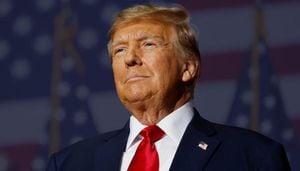Elon Musk's attempt to acquire OpenAI has sent shockwaves through the tech world, as he leads a consortium of investors offering $97.4 billion for control of the nonprofit organization behind ChatGPT. This bold move intensifies the longstanding rivalry between Musk and OpenAI's CEO, Sam Altman, as Musk seeks to reshape the organization to align with his vision of returning to its original, open-source values.
According to The Wall Street Journal, Musk's attorney Marc Toberoff confirmed the bid was submitted to OpenAI's board of directors on February 10. The unsolicited offer poses significant complications for Altman, who is currently orchestrated plans to transition OpenAI to for-profit status through the establishment of OpenAI Global, LLC. This process aims to attract investment and facilitate the development of innovative AI technologies. Musk, who lent his expertise and financial backing to launch OpenAI in 2015, has been vocal about his discontent with the current direction of the organization.
"It's time for OpenAI to return to the open-source, safety-focused force for good it once was," Musk stated through Toberoff. This statement encapsulates Musk's desire for OpenAI to reclaim its foundational mission of benefiting humanity without the constraints of profit orientation.
Altman's response to Musk's dramatic bid was swift and dismissive. He took to X (formerly Twitter) to quip, "No thank you but we will buy Twitter for $9.74 billion if you want"—a nod to Musk's earlier acquisition of the social media platform for $44 billion. This rebuttal indicates Altman's continuing commitment to his vision for OpenAI, which has recently shifted gears significantly with the rise of AI technologies.
The dispute mirrors broader tensions surrounding the changing nature of AI development. Musk originally exited OpenAI after being denied operational control, leading him to establish his own AI company, xAI. He accused OpenAI of becoming "ClosedAI," alleging it has forfeited its nonprofit principles to serve as a subsidiary for Microsoft, one of OpenAI's biggest investors.
This starkly contrasts the initial intentions behind OpenAI's creation. The organization's founding principles emphasized advancing artificial intelligence to benefit humanity as a whole and remain free from the obligations imposed by profit-making ventures. Yet, with increasing demands for investment fueled by technological competition, the nonprofit transitioned to incorporate for-profit entities.
The stakes have never been higher as Musk's potential acquisition could complicate OpenAI's path forward. If Musk's group succeeds, it may also mean asserting significant control over the non-profit entity, which still retains ownership of substantial assets tied to OpenAI's cutting-edge projects.
Toberoff voiced concerns about the potential financial incentive behind transitioning OpenAI to for-profit, stating, "If Sam Altman and the present OpenAI Inc. Board of Directors are intent on becoming a fully for-profit corporation, it is important the charity be fairly compensated for what its leadership is taking away from it: control over the most transformative technology of our time."
The legal clash between Musk and Altman continues to evolve amid their battle over OpenAI's ethical responsibilities and future direction. While Musk's legal fight asserts OpenAI should remain committed to its nonprofit mission, Altman is determined to leverage funding opportunities for the organization's expansion.
Recent reports revealed OpenAI's soaring valuation, recently estimated at $157 billion following substantial investments. With looming deals, like the anticipated $40 billion venture from Softbank, OpenAI is primed for growth but also faces increased scrutiny.
These developments take place against the backdrop of Musk's ambitions with xAI, showcasing his competitive spirit. While supporting the idea of open-source compliance, Musk's critiques leave room for speculation about his motives, especially as xAI makes strides toward creating AI tools competitively akin to OpenAI's offerings.
Altman's quick dismissal of the acquisition proposal reflects not only the rivalry but also the resilience of the established OpenAI leadership against Musk's disruptive influence. While the future remains uncertain, both parties uphold contrasting visions of research and application within the vast field of AI, dictifying the terms of engagement between Musk, Altman, and their respective interests.
Moving forward, the tech community watches closely as Musk's proposition and Altman’s response highlight the very themes defining AI discourse today: ethical versus profitable paths, collective versus individual ambitions, and the overarching impact on humanity.



